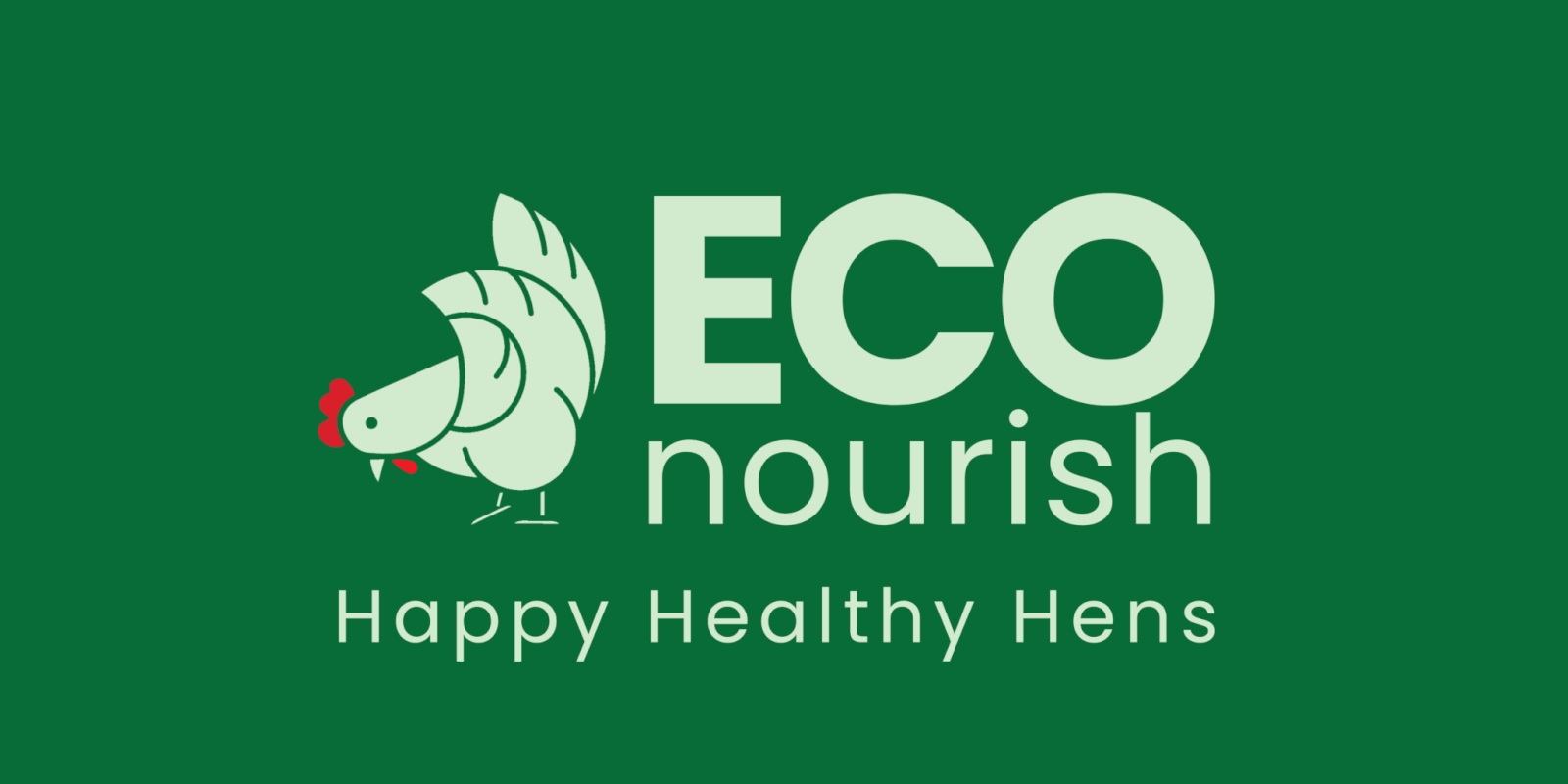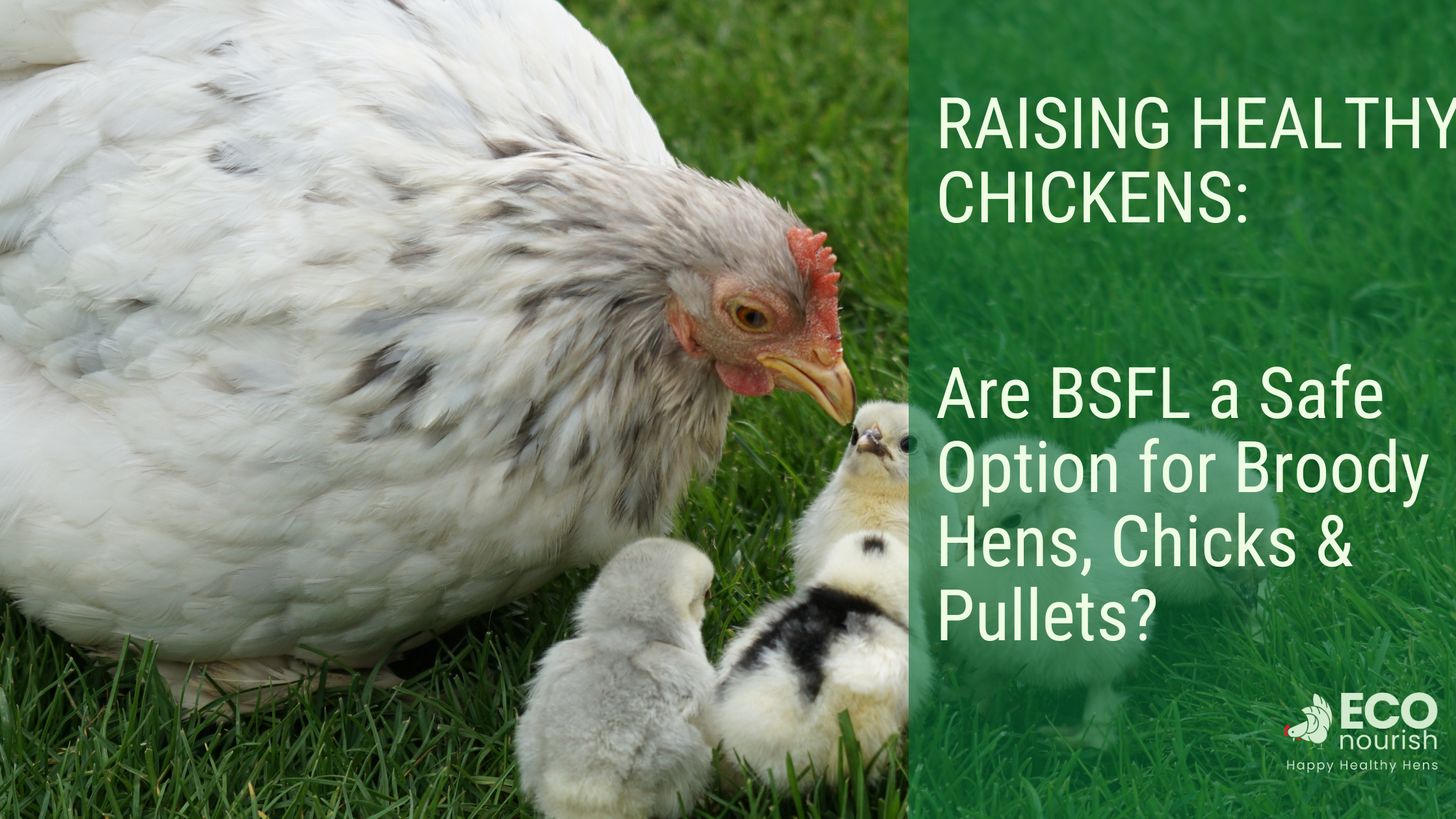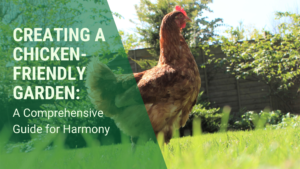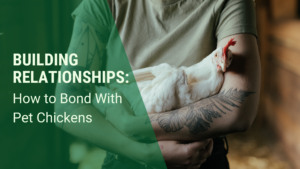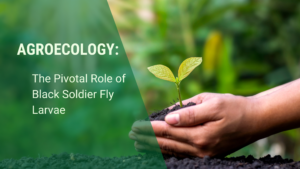When the conversation turns to poultry nutrition, one star player flies right to the top: Black Soldier Fly Larvae (BSFL). These wiggly wonders are a rich source of nutrients. Still, as with all novelties in the garden coop, the prudent poultry keeper must consider aspects like safety, the developmental stage of the chickens, and balance within the diet. So, let’s untangle the complexities of BSFL and how they fit into the diets of brooding hens, chicks, and pullets.
Brooding Hens: The Demands of Nesting Nutrition

Broody hens are the epitome of dedication, often forsaking food and water to maintain the warmth and security of their eggs. However, their nutritional needs are paramount during this time. Research has shown that diets rich in protein and essential nutrients can significantly affect the health and productivity of brooding hens. With their high protein and beneficial fat content, BSFL can be an ideal supplement, providing much-needed energy and helping these devoted mothers maintain their condition.
Moreover, because BSFL contains fibre, it can aid in keeping the digestive system moving. Since brooding hens have a tendency to ‘hold it in,’ a bit of extra dietary fibre from the larvae can help mitigate this behaviour, ensuring that they remain as comfortable as possible during this taxing period.
The novelty factor of BSFL can also incentivise hens to momentarily vacate their nests and grab a quick bite, ensuring they stay more balanced and motivated throughout their brooding.
Chicks: The Need for Nutrition Precision

Growing chicks require substantial nutrients for their development, specifically proteins and fats, to fuel their rapid growth. BSFL, being naturally chock-full of these constituents, initially seem an ideal choice. This study shows benefits for chicks fed live BSFL in terms of growth and immune development. https://www.frontiersin.org/articles/10.3389/fvets.2022.1064017/full
However, the presence of chitin – a fibrous substance in the exoskeleton of BSFL – necessitates caution.
Chitin is difficult for chicks to digest in large quantities. While BSFL can still be a beneficial part of their diet, it’s crucial to ensure they’re not over-consumed. Interestingly, mother hens naturally regulate this, often breaking down larger insects into more digestible pieces for their babies. For hand-reared chicks without a mother hen’s oversight, it’s advisable to avoid BSFL until their digestive systems mature.
Pullets: Preparing for the Future with Proper Feeding

As pullets approach laying age, their bodies prepare for the production of eggs, which requires a delicate balance of nutrients, particularly calcium. However, when feeding BSFL to developing pullets, one must consider the larvae’s calcium content.
Live or fresh BSFL offer a balance that can eliminate these concerns since they’re less dense in this mineral compared to their dry counterparts. Furthermore, the feeding of BSFL appears to encourage healthy pecking and social interaction among young hens, promoting a well-adjusted flock dynamic (https://www.sciencedirect.com/science/article/pii/S0032579123003206).
Our experience with supplementing our pullets’ diets with BSFL showed no adverse effects and indeed seemed to support their growth and development. This anecdotal evidence, coupled with scientific evidence, suggests that a balanced approach to BSFL supplementation can be both beneficial and safe.
Feeding Techniques: Size, Scatter, and Safety
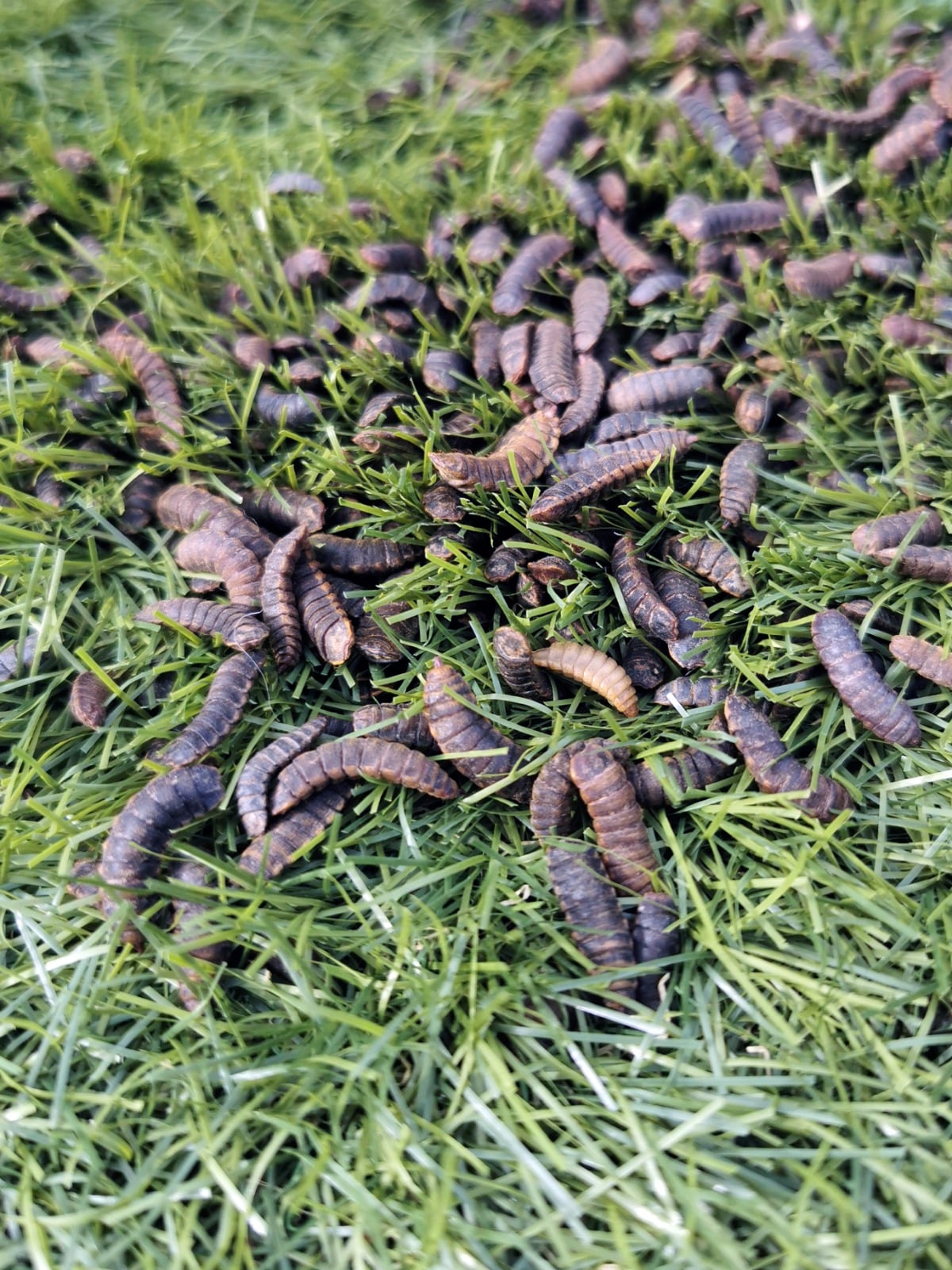
Quantity and presentation are key when feeding BSFL. Like any other supplement, larvae should not constitute the entire diet but should be scattered in moderation as a treat. Scatter feeding not only prevents overindulgence but also encourages the natural foraging behaviour of chickens, providing both physical and mental stimulation.
Portion size should be appropriate to the age and size of the bird. For broody hens, a small handful of larvae per day is enough. Pullets can benefit from a similar amount. These portion sizes come from observing natural behaviour and align with suggestions that emphasize the importance of balanced nutrition.
The Verdict: BSFL, a Treat for the whole Coop

In summary, BSFL offer a nutritious, high-protein snack for chickens at various life stages, but the key is balance and moderation. For brooding hens, they are a welcome nutritional boost; for chicks, a controlled supplement; and for pullets, a beneficial addition fostering health and social well-being. Always ensure that larvae are fresh and fed in combination with a complete and balanced diet.
As stewards of our feathered flocks, it’s our responsibility to provide them with a diet that’s not only sustaining but also within their digestive comfort zones. So, sprinkle those BSFL like a Michelin-starred chef, watch your broods thrive, and know that with each larva, you’re bolstering nutrition responsibly.
